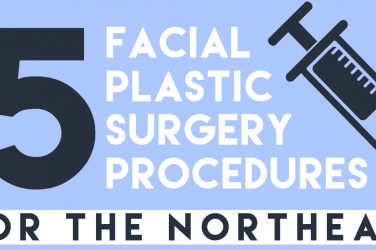Physical activity is beneficial to your body for many reasons, including ensuring a solid heart and improving your joints and bones, but did you even know that it is also beneficial to your mental health? Given the high prevalence of anxiety, depression, and other mental health conditions around the world, exercise’s positive mental health effects may benefit a large number of people.
In this article, we’ll look at the link between exercise, mental illness, and the brain that can affect your mental health.
Effect on Depression
Physical activity can be used as a complementary therapy for depression. Workouts can be used independently or in conjunction with medication and/or psychological therapy. It has few side effects and is not associated with the stigma that some people associate with antidepressants or psychotherapy and counseling.
Physical activity is accessible to all, comes at a low cost, and is an empowering method for self-management. Exercising releases endorphins and endorphins produce a similar positive sensation in the body to morphine. The activation of these receptors by the body’s endorphins, unlike morphine, does not lead to addiction or dependence.
Effect on ADHD
Attention Deficit Hyperactivity Disorder (ADHD) is a common mental health disorder. ADHD patients may have difficulty paying attention, controlling impulsive behaviors, and being overactive. Exercise is one of the most effective treatments for ADHD in both children and adults. Exercising encourages the release of dopamine. Dopamine is a neurotransmitter that is responsible for pleasure and reward. Dopamine levels in the brain are slightly lower in people with ADHD than in general.
Effects on Anxiety
One of the most effective ways to deal with and handle stress and anxiety is to exercise. Exercise-induced stress causes your brain to release endorphins, which are natural painkillers. Exercise regularly, whether every day or three times a week, encourages your brain to release endorphins, which can help you feel better.
You can also pair supplements that help reduce anxiety alongside your workouts to get the maximum benefits and get a proper handle on your stress. A proven supplement like Theanine paired with daily training sessions can often form a strong mental anchor that helps people deal much better with anxiety and stress throughout the day.
Effect on PTSD
Post-traumatic stress disorder (PTSD) is a mental health problem brought on by having witnessed or experienced a disturbing event. Flashbacks, nightmares, severe anxiety, and extreme anxiety about the event are all possible symptoms.
A regular exercise program’s effect on PTSD symptoms has been studied in several studies. A 12-week exercise program that included three 30-minute resistance training sessions per week and walking was found to result in a significant reduction in PTSD symptoms, depression, and better sleep quality after the program ended in one study of adults with PTSD.
Physical activity was also found to significantly reduce depressive and PTSD symptoms in a review of four randomized controlled trials (RCTs) on the effect of regular exercise on PTSD. More research into this relationship is needed, and it was concluded that including physical activity in the treatment of PTSD appears to be beneficial.
Effect on Bipolar Disorder
Bipolar disorder is a psychological disorder of mood and energy swings, making it difficult to concentrate, and making it difficult to complete daily tasks. Symptoms of depression and mania are common in this condition, though symptoms can be mixed in some cases.
Mood-stabilising or antipsychotic medications, as well as psychotherapy, are common treatment options. Work out has been shown to better handle symptoms of bipolar disorder in addition to traditional treatment methods.
Regular physical activity, in particular, may help people with bipolar disorder reduce mood swings and promote a better sense of well-being. Weight gain is a side effect of many of the medications commonly used to treat bipolar disorder, and routine exercise can help limit this effect.
Effect on OCD
Obsessive-compulsive disorder (OCD) is a disorder in which you have uncontrollable recurring thoughts (obsessions) and behaviors (compulsions) that you feel compelled to repeat over and over. This disorder can affect all aspects of life, including work, school, and home life, depending on its severity. A structured exercise program is a popular alternative treatment for OCD.
Researchers found a significant reduction in OCD symptoms after a 12-week aerobic exercise program in 56 adults with OCD in a 2017 study. They also discovered decreases in anxiety and depression, two other symptoms common in people with OCD. This suggests that regular exercise could be an effective supplement to OCD treatment.
How to Start a Workout for your Mental Health?
Now that you know the effects a workout could have for your mental health; you would want to start a workout plan. Here are a few tips to start a workout and maintain it as well:
- Don’t go overboard: It’s important not to push yourself too hard at first, as this can lead to physical injury. Remember that while exercise can be enjoyable and beneficial to your mood and anxiety, it should not cause physical harm. Start slowly and surely increase your exercises as time goes on.
- Workout with a Friend: Exercising with a friend or loved one can make it more fun and help you stick to your fitness goals. Exercising with a friend can help you stay motivated. It’s also a fantastic way to make new friends. You will also get a chance to socialize while you workout.
- Keep Experimenting: Experiment with various strategies to see which ones work best for you. If you find it difficult to exercise first thing in the morning, try exercising later in the day. If you find yourself dreading going to the gym, try exercising outside. Continue experimenting until you find something you can stick to.
Final Words
A large percentage of the world’s population suffers from mental illnesses. Traditional treatment methods include medications and psychotherapy, but regular exercise has been shown to be a promising complementary treatment option.
Exercise causes the release of hormones in the brain that can help you feel less stressed, have more self-confidence, have a better mood, sleep better, and have better memory and thinking. You’ll be well on your way to better mental health and overall better quality of life if you exercise regularly and eat a nutritious diet.






